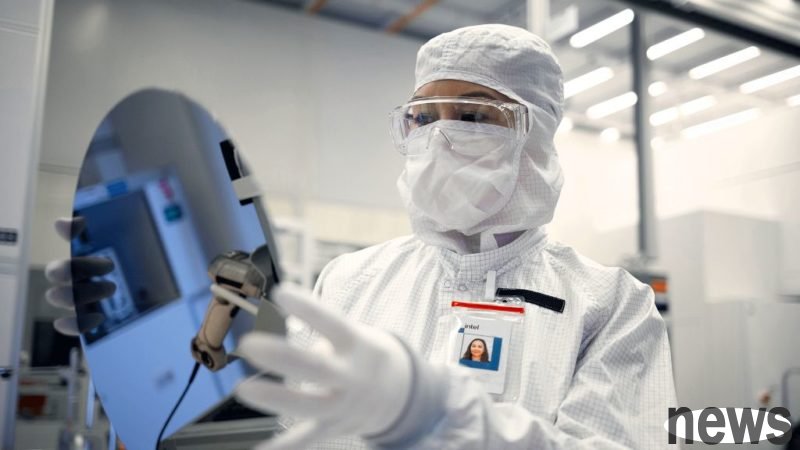When Microsoft and Intel announced in early 2024 that they planned to create a customized processor using the 18A process, the two companies did not disclose the purpose of this chip, leaving a lot of room for speculation among industry insiders. Ac...

When Microsoft and Intel announced in early 2024 that they planned to create a customized processor using the 18A process, the two companies did not disclose the purpose of this chip, leaving a lot of room for speculation among industry insiders. According to the latest report from technology news website SemiAccurate, Intel Foundry is producing an AI chip based on the 18A or 18A-P process for Microsoft.
Due to the lack of details, it can only be speculated that the new generation of Maia chips will be produced by Intel Foundry, which is a major breakthrough for Intel. Since the die area of data center-level processors is quite large, if Intel Foundry can undertake it, it means that the 18A process, or the 18A-P process with an 8% performance improvement, will not only be enough to support Intel's own products (such as the Xeon 6+ processor, code-named Clearwater Forest, expected to be mass-produced in 2026), but also ready to provide stable yield production for external customers. The Microsoft-Intel contract may even symbolize Intel's superior manufacturing process, otherwise Microsoft can choose a smaller die architecture to reduce risks.
Microsoft’s first Maia 100 chip has a size of 820 square millimeters and contains 105 billion transistors, surpassing NVIDIA’s H100 (814 square millimeters) and B200/B300 (750 square millimeters). Although most of Microsoft Azure's AI computing relies on NVIDIA GPUs, the company is actively investing in software and hardware integration design to improve computing performance and reduce total cost of ownership (TCO). Therefore, Maia chips are an important project for Microsoft.
Assuming that Microsoft’s AI chips produced by Intel Foundry use computing dies that are nearly the size of a photomask, this means that Intel’s 18A process has reached a sufficiently low defect density to support the mass production yield of this type of chip. Microsoft may also design next-generation chips as multiple computing chips (chiplets) interconnected through Intel EMIB or Foveros technology, but this may sacrifice performance efficiency.
To reduce risks, Intel and Microsoft are almost certain to carry out Design-Technology Co-Optimization (DTCO), with Intel adjusting transistor and metal stacking parameters according to Maia chip workload and performance targets. At the same time, Microsoft may add redundant computing arrays or redundant MAC blocks to the chip design to support post-manufacturing splicing or repair, which is similar to NVIDIA's strategy in high-end chip design.
If the news is true, the cooperation between the two parties means that Microsoft's chip products will be fully supported by the chip supply chain in the United States, thereby avoiding the current bottleneck of TSMC in chip manufacturing and advanced packaging production capacity. In addition, given the U.S. government's investment in Intel, the deal also has geopolitical and strategic advantages for Microsoft.
The current focus will be on which AI chip Intel Foundry will produce for Microsoft and when will it be mass-produced? According to the latest rumors, Microsoft is developing a new generation chip code-named Braga (possibly Maia 200), which is expected to use TSMC's 3-nanometer process and HBM4 memory. The target launch time is 2026, and a project code-named Clea (possibly Maia 300) is being planned.
Intel Foundry secures contract to build Microsoft’s Maia 2 next-gen AI processor on 18A/18A-P node, claims report — could be first step in ongoing partnership Further reading: Microsoft announces entrusting Intel to manufacture chips using 18A process technology To enhance server workloads, Microsoft develops its own DPU and data security chips Microsoft releases new self-developed AI chips and cloud computing processors, manufactured by TSMC